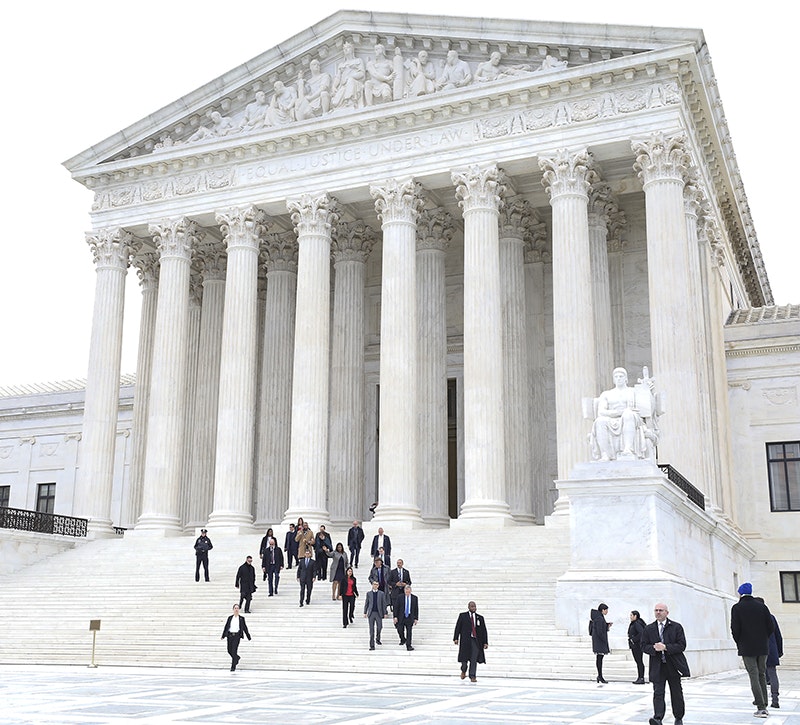Streamlining 212(d)(3) Waivers
for DACA Recipients, Dreamers, and Others


In 2024, the Department of Homeland Security announced that it was taking steps and working with other agencies to improve the process for DACA recipients, Dreamers, and other eligible individuals to receive nonimmigrant employment-based visas. The Department of State (DOS) issued updates to its Foreign Affairs Manual to begin streamlining this process by clarifying that individuals with degrees from U.S. colleges and universities can be recommended for expedited waivers.
This policy brief explains how the 212(d)(3) waiver, also known as the D-3 waiver, can help qualified individuals, including DACA recipients and Dreamers, receive a nonimmigrant visa without being stuck outside of the U.S. for many years because of immigration bars, and identifies meaningful improvements the administration can implement to streamline that process and increase participation.
Access to employment-based visas could be life-changing for many DACA recipients and other Dreamers. While current DACA recipients have work authorization, that program could be ended by the Supreme Court within a year, forcing more than 400,000 people out of their jobs. There are also tens of thousands of Dreamers now graduating from college who are eligible for DACA but cannot apply because the program is frozen, and thousands of Dreamers graduating high school each year who are permanently ineligible because they cannot meet the arrival date requirement.
Many DACA Recipients Could Qualify for Employment Visas
Many Dreamers (immigrants who came to the U.S. as children) have the requisite education, training, and even existing employment relationships to qualify for nonimmigrant, or temporary, employment-based visas, including H-1B “specialty occupation” visas. This is particularly true for individuals enrolled in or eligible for Deferred Action for Childhood Arrivals (DACA).
FWD.us estimates that nearly half (49%) of DACA recipients have some college education, with many still working to complete their education. Some 40,000 have an associates degree from a community or technical college. Additionally, an estimated 70,000 have a bachelor’s degree, while 17,000 have an advanced degree.1
If they were sponsored by their employer for a visa, they could secure a legal status and more reliable and secure work authorization. Certain visas, like H-1Bs, could even open pathways to permanent residency and the chance to apply for citizenship. And their employers would have certainty that they would be able to retain and invest in talented, valued members of their team for years to come.
Unfortunately, too few people have pursued this option, in part because of the risk and uncertainty surrounding the visa process, which could result in their being stuck outside of the U.S. for years. Applicants do not find out until after they have already left the U.S. if their waiver will be approved, and appointment times and processing times vary greatly in different parts of the world. The D-3 waiver is an important part of this process, and these proposed changes are intended to minimize that risk and uncertainty.
212(d)(3) Nonimmigrant Visa Waivers Address Prior Immigration Issues
DACA recipients, Dreamers, and other individuals are generally required to depart the U.S. and apply at a consulate or embassy to be readmitted with a nonimmigrant visa. However, the fact that they have lived in the U.S. undocumented, even if they now have DACA, could trigger an immigration bar preventing them from re-entering for up to ten years.
The 212(d)(3) nonimmigrant visa waiver2 can provide temporary relief from these immigration bars and certain other inadmissibility issues that might result in a visa being denied. If an individual applies for their visa at a U.S. consulate or embassy abroad but is found to be inadmissible, the State Department officer can choose to recommend the individual for a D-3 waiver. The waiver recommendation is adjudicated by Customs and Border Patrol (CBP) under DHS.
The waivers are discretionary and weigh factors like the recency and seriousness of previous immigration violations, reasons for seeking a visa, and the positive impacts of their admission. It is a critical tool for which many DACA recipients and DACA-eligible individuals should certainly qualify.
Streamlining the D-3 Waiver Process for Certainty, Predictability, and Efficiency
In 2024, DOS published updates to its Foreign Affairs Manual, the handbook used by officers when evaluating visa applicants. The updated guidance is intended to clarify and streamline the D-3 waiver process for qualified immigrants.
The updated guidance explains that it is in the U.S.’ public interest to admit individuals who have a degree from a U.S. college or university, or who have earned credentials to conduct skilled work in the U.S. The guidance also clarifies that these cases should be prioritized for expedited processing.
Now, if a qualifying DACA recipient or Dreamer must leave the country to adjust their status via an employment-based visa, they and their employer can understand better in advance their eligibility for the waiver and expect a faster process.
The updated guidance is an important step forward, providing individuals and employers with more certainty and a faster process. However, there is more that DOS and DHS can do together to further streamline this process.
Priorities for additional improvements to the D-3 waiver process
The most impactful improvement would be to establish a process for qualified applicants to apply for and receive decisions on nonimmigrant waivers prior to departing the U.S., similar to the provisional unlawful presence waiver process for green card applicants. This would reduce the amount of time an approved individual would need to be outside the U.S., and provide more certainty that they would be granted a visa, and thus be able to return to the U.S.
The departments could also make the process more efficient by creating a consolidated, centralized, and uniform approval process, including designating embassies and consulates for processing D-3 waiver requests and allowing for third country national processing, to reduce costs and risks of travel for applicants, and to ensure consistency in application processing.
These steps would not create new programs or pathways; individuals would still have to qualify for and be approved for an existing nonimmigrant visa pathway. These changes would simply clarify and strengthen the existing process so that more eligible individuals take advantage of it.
In practice, these targeted changes could unlock opportunities for tens of thousands of Dreamers and many others. DOS and DHS should build on these important first steps and ensure this process is optimized to best serve U.S. businesses and talented, qualified individuals.
Notes
- Estimates rely on immigrant assignment of respondents in the 2022 American Community Survey, according to this methodology.
- The name of the waiver refers to the section of the Immigration and Nationality Act that authorizes it.
Tell the world; share this article via...
Get Involved
We need your help to move America forward. Learn what you can do.




